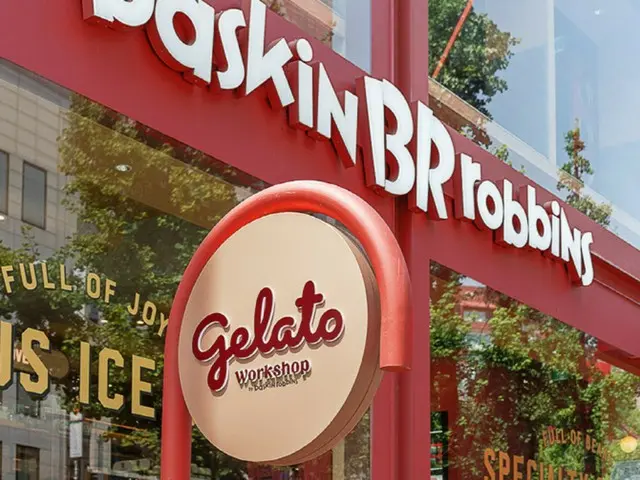It has been confirmed that BR Korea has been found to be "clear" of suspicion of passing on interior design costs to franchise owners.
According to the relevant government agency on the 24th, the Fair Trade Commission held a small meeting in April this year to discuss BR Korea's violation of the "Fairness in Franchise Transactions Act" and decided to
The committee decided to end the deliberation procedure. The end of the deliberation procedure is a type of disposition that can be issued after deliberation by the Fair Trade Commission's plenary meeting or small meeting (equivalent to a first instance court).
This is a different concept from a "no suspicion disposition," but from the company's perspective, it is a disposition that the FTC has not made a judgment on illegality.
Prior to this, the Fair Trade Commission investigators had found that BR Korea had made inappropriate efforts to improve the store environment of its franchisees from 2015 to 2022.
In the process of reviewing the franchise, the company considered the failure of the headquarters to pay the expenses it was supposed to bear to be illegal and sent an examination report (equivalent to a prosecutor's indictment).
The law stipulates that if franchisees improve their store environments, the headquarters must cover 20-40% of the construction costs. The issue at issue in the case is whether BR Korea directly solicited or requested improvements to the store environments.
During the deliberation process, the investigators pointed out that BR Korea had made and led the improvement plan. Meanwhile, BR Korea argued that the store environment improvement work in question was a regular project for existing stores.
The company claims that the construction work was carried out in the form of a "third-party transfer and acquisition" by a new franchisee who took over the management rights from the existing franchisee, and that the improvements were not subject to the payment of the statutory contribution, unlike the construction work carried out in the previous franchisee.
The Fair Trade Commission said it was difficult to determine whether the law was violated.
Regarding the statutory burden for interior construction work when franchise owners are replaced among the three parties, the committee stated that it would be appropriate to reserve judgment until regulatory standards were clearly established.
The committee members said, "The legal provisions are intended to protect not only those who inherited existing contracts, but also transferees who are granted new contract terms.
"It is difficult to say for sure whether there is a problem," he said. "It appears necessary to take into account general trade practices not only of the target company, but also of other franchise headquarters and the market as a whole."
Meanwhile, in April this year, the Fair Trade Commission rejected BR Korea's application for an extension of the deadline for payment of fines (penalties) and for installment payments for another violation of the Franchise Act.
In March, the company designated 38 items, including kitchen equipment and consumables, as essential items for franchisees of Dunkin' Donut and Coffee, based on information disclosure documents and other sources, and required them to purchase only from headquarters.
The FTC imposed a surcharge of 2.136 billion won on the company for requiring the company to pay the surcharge in a lump sum.
The court determined that the case did not fall under any of the categories of "cases in which significant difficulties are expected to arise in maintaining the business."
2025/07/25 09:21 KST
Copyrights(C) Edaily wowkorea.jp 88

